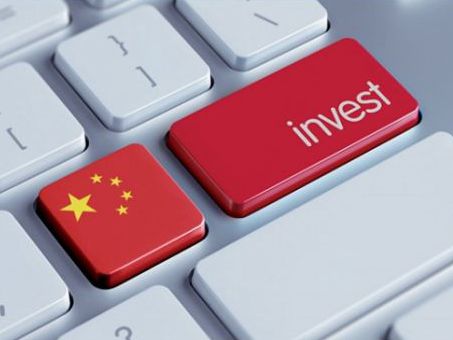China has formulated temporary policies to curb the rapidly growing outbound investment amid a slowing economic growth and yuan’s depreciation expectations. Industry insiders expect money transfers in the form of financial investments to be put under closer scrutiny while strategic mergers and acquisitions may not be affected.
The State Council had circulated an internal file aimed at curbing outbound M&A activities, Bloomberg reported late last year, citing a source familiar with the matter. “The restrictions outlined are put into force already, with the National Development and Reform Commission now working on detailed terms,” Bloomberg cited sources as saying, adding the restrictions are temporary and would be lifted in September 2017. The NDRC could not be reached for comment.
Certain kinds of overseas investment would not be allowed in principle, such as investment by state-owned companies of more than $1 billion in real estate, investments of more than USD 1 billion if deals are not related to the investor’s core business, extra-large investments valued at over $10 billion, and acquisitions of 10% or less of the shares in overseas listed companies, Bloomberg said, citing the file.
“We have witnessed that outbound investment has become more difficult lately, and the time required to obtain approvals to remit funds out of China is longer,” said Philippe Metoudi, a Hong-Kong based investment banker and managing partner of AlfaSec Advisors.
Overseas direct investment in December 2016 alone reached 55.86 billion yuan, registering a drop of nearly 39.4% from the same period last year. In December 2015, ODI had scaled at 86.5 billion yuan.
Industry participants said the controls on outward investment could be due to the government’s concerns over yuan’s further depreciation, which has devalued 6.8% vs. the dollar in 2016.
Commerce Ministry’s data released on Monday showed non-financial outbound investment hit 1129.92 billion yuan in 2016, increasing 44.1 percent on year, while the State Administration of Foreign Exchange data released in November indicated financial outbound investment during the first three quarters hit 23.56 billion yuan.
Analysts said many local companies are using the overseas investment as a way to transfer money out of the country, betting on a further depreciation of the yuan. “(The move) would create some instability in the financial market and further weaken the yuan,” said Metoudi.
“Chinese authorities have clearly made a distinction between financial investments and strategic investments,” he said, adding financial investments for the sake of merely making more money should not be treated in the same way as strategic investments aimed at obtaining better technology and resources, which could help Chinese companies become more productive and create more jobs.
Metoudi expected that investments in renewable energy, such as electric vehicles and solar energy, and investments in med-tech and pharmaceutical industries, among others, would still obtain approvals fairly easily, while pure financial investments have come under greater scrutiny.
However, the curbs on overseas investments could only be temporary as financial investment abroad aimed at maintaining assets value may not become mainstream over a long period, said industry insiders.
“A huge population and rapidly growing revenue make domestic market sustainable. It doesn’t make sense for China’s businesses to give up the local market and transfer all their money abroad,” said Zhou Mi (周密), deputy director, Institute of American and Oceanian Study, Chinese Academy of International and Economic Cooperation, Ministry of Commerce.
Overseas investment to be more regulated
Meanwhile, regulators have warned Chinese companies to be more prudent in making decisions on cross-border investments, as risks may emerge from the deals.
The NDRC, Commerce Ministry, the State Administration of Foreign Exchange and the central bank collaborated in an announcement last December, requiring special attention to be put mainly on irrational overseas investments in industries like real estate, hospitality, cinema chains, entertainment and sports clubs.
Practices such as extra-large investment outside investor’s core business, outbound direct investment by limited partnership, “small parent and big subsidiary” investment pose potential risks and need more prudent decision-making, according to the joint statement. “Small parent and big subsidiary” refers to cases in which the size of the target is much larger than the size of the Chinese buyer or the Chinese buyer makes the investment shortly after its establishment.
To ease the concerns, the going out policy may be overturned due to capital outflow fears, Shen Danyang, the spokesman for the Ministry of Commerce, said during a press conference on December 23, 2016, indicating Chinese outbound investment in 2017 would continue to grow, and China’s policies on overseas investment would not change.
Countries covered by China’s One Belt One Road initiative have drawn considerable amount of investment over the past year. Based on commerce ministry’s data, Chinese enterprises totally invested $14.53 billion in the OBOR countries in 2016; and by the end of 2016, the total investment accumulated to $18.55 billion and has created 177,000 new jobs.
